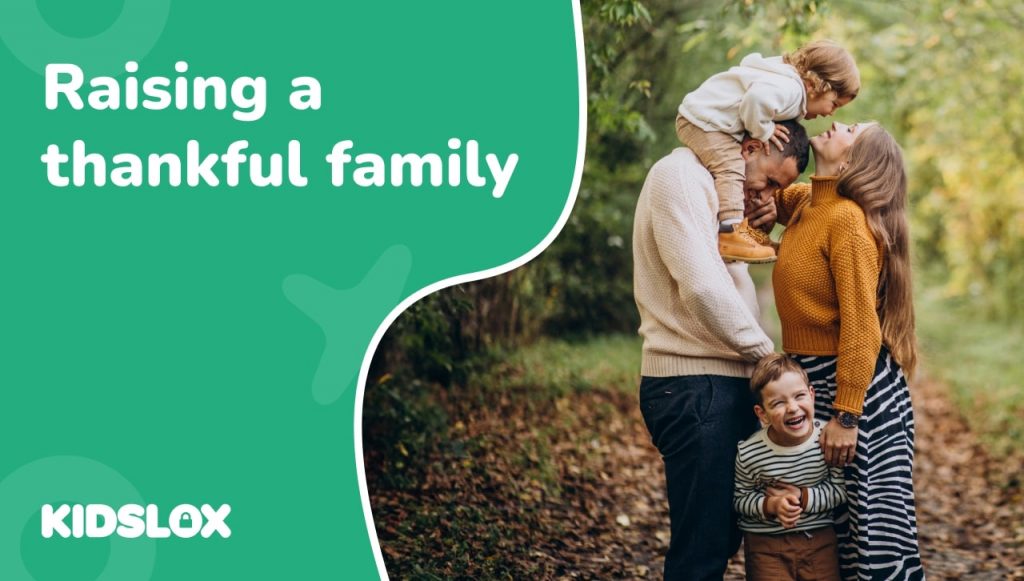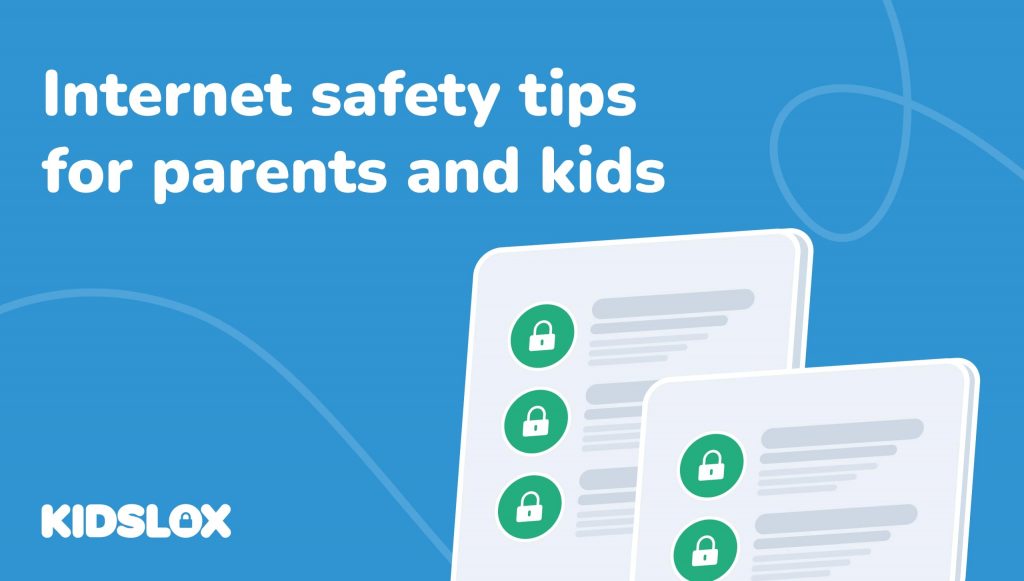Tips and ideas to teach kids gratitude.
When we reflect on what truly matters in life, our family often comes to mind. The bonds we share, the support we receive, and the love that surrounds us are irreplaceable. Being thankful for our family is one of the cornerstones of a happy and fulfilling life.
However, being grateful isn’t always easy.
Being positive and being grateful are two different things, but being grateful can help you and your children navigate through life’s challenges with a more robust and resilient outlook. It’s not about smiling through the pain and hardships, or putting on rose-tinted glasses, it’s about creating a practice that allows you to see small chinks of light in even the darkest moments.
Within this Guide, you’ll find practical advice and tips to help raise a thankful family and grateful kids. How to create your own gratitude-focused mindset and why it’s so good for our mental and emotional well-being to give thanks.
Why is it important to encourage kids to be grateful?
In our fast-paced world, and with social media encouraging materialistic lifestyles, it is easy for children to become disillusioned and to take things for granted. However, practising gratitude and being thankful for the little things can have a profoundly positive effect on our relationships and overall well-being.
The benefits of having a grateful family are numerous. Research has shown that gratitude can improve mental health, increase happiness, and even boost our immune system. When we are grateful for what we have (as opposed to worrying about what we don’t), we are more likely to experience positive emotions, such as love, joy, and contentment. This, in turn, creates a more positive family environment where everyone feels valued and appreciated.
Gratitude can also improve our relationships with our family members. When we express our thanks and appreciation, we are more likely to receive the same in return. This creates a cycle of positivity that can transform our family dynamics. Being thankful for our family also helps us to be more forgiving and understanding, as we recognize the importance of our relationships and the value of each family member.
How can I ensure my kids are thankful?
Gratitude goes beyond your children saying thank-you and sending notes to family members after their Christmas presents are opened. It’s even more than Thanksgiving’s sharing around the table. Practising gratitude is an important skill and mindset that can reduce anxiety, stress and foster positive mental health habits for your kids. Here are some practical tips for parents to encourage gratitude in their home:
Lead by example: Children learn by observing the behavior of those around them. If you talk about the things you’re thankful for, and make sure you show your gratitude to the people around you, your children will follow.
Create a gratitude journal: Keeping a gratitude journal, or writing down one thing a day that you’re thankful for is a great idea. This simple practice can help foster a sense of appreciation and awareness of the positive aspects of their lives without dwelling on hard times or situations.
Practice gratitude as a family (beyond Thanksgiving!): Set aside time each week for family gratitude practices. This could include sharing something you are grateful for during a family meal, or writing thank-you notes to each other.
Volunteer together: Volunteering as a family is a great way to teach children the importance of giving back and helping others. It also provides an opportunity to reflect on the many blessings in your own lives.
Encourage positive language: Help your children develop a positive vocabulary by using words such as “thankful,” “grateful,” and “appreciative” in your daily conversations. One tip to encourage this is to swap out when you say “lucky” with “thankful” – you’ll notice how many times you say it!
Celebrate small wins: Take time to celebrate small achievements and milestones as a family. This can help foster a sense of accomplishment and gratitude for little things.
Practice mindfulness: Teach your children mindfulness techniques, such as deep breathing or meditation, to help them develop a greater sense of awareness. Spending a little longer on an out breath is a technique used in pilates to help restore a sense of calm in your body.
Random Acts of Kindness: Encourage your kids to make someone else’s day brighter by challenging them to do one kind act every day.
Learn from Strife: Children can take knocks to their confidence hard – especially when something they want or have been working towards doesn’t go to plan. Take these moments as a chance to teach them resilience by finding the lesson in what they’re going through. This will encourage them to spin their train of thought back to a more positive track.
Make a gratitude wall or jar: Displaying messages and tokens of thanks somewhere in your home gives a constant reminder of the positive power of being grateful for the things we have. Some children need visual cues to help them develop, and this is a great tip for those kids who need extra attention.
Reduce screen time and increase personal interactions: the comparison culture on social media, especially within platforms like Instagram, where everything looks glossy and perfect isn’t good for our collective mental health. The sharing of possessions, days out, expensive gifts and experiences is not a reflection of the real world – or most families’ lives. Help protect your child’s mental health by reducing their screen time access and spend more time outdoors and in each others’ company.
Be patient: A positive mindset can’t be created overnight, but with daily practice, everyone can learn to be more grateful.
Compliment others: Be generous with your words to others, and your children will take notice.
Take time in nature: It’s hard to feel down when you’re confronted by the beauty and wonder of the natural world. The next time you’re outdoors with your kids, make a concerted effort to point out the things you’re thankful to see around you.
Remember: There’s always something to be thankful for, even when things get tough. It’s a good motto to live by.
Why Being Grateful is Good for Mental Health
The connection between gratitude and mental health is well-documented in psychological research. Gratitude has been linked to increased happiness, reduced symptoms of depression, and improved overall well-being.
One reason why being thankful is beneficial for mental health is that it helps to shift our focus from what we lack to what we have. When we appreciate the support and love of our family, the food on our table, and achievements we make, we are less likely to dwell on negative experiences or stressful things. A positive perspective can significantly impact our mental health, reducing feelings of anxiety.
Gratitude can improve our relationships with our family members, which is another essential aspect of mental health. Positive relationships are a crucial source of support and can act as a buffer against stress and adversity. When we express gratitude towards our family members, we strengthen our bonds and create a supportive and loving environment that promotes mental well-being.
Research also suggests that gratitude can improve sleep quality, increase resilience, and boost self-esteem. These benefits are all crucial for maintaining good mental health. By practising gratitude, we are taking active steps to improve our mental well-being and create a happier and more fulfilling life.
Making Gratitude as Natural as Breathing
Gratitude is not just a fleeting emotion or action towards another; it’s best to think of it as a mindset that can be developed through regular practice. Making gratitude part of your routine will be challenging at first, but the benefits are worth it. Here are some ways you can get started:
Begin your day with gratitude: Begin each day by reflecting on three things you are grateful for. Have a reminder on your mirror or door. Even seeing the sign will help promote a more positive mindset as you get on with work and life!
Express gratitude to others: Make a conscious effort to share your thanks with others. Whether it be through a simple thank you, a handwritten note, or a thoughtful gesture. This can strengthen your relationships and spread positivity. It’s proven to make you feel better too!
Find gratitude in the challenges: Even in difficult times, there is always something to be grateful for. Try to find the silver lining in challenges and use them as opportunities for growth and learning.
Being Grateful For Your Own Family
No one has the power quite like our family to grind our gears (let’s be honest!). Whether it’s a forgetful partner, a teens’ challenging behaviour or an intrusive in-law. We often hear the saying; ‘friends are the family you choose’ to remind us of that fact!
Remember, no matter what you – or the kids – see online, nobody has a perfect family – it simply doesn’t exist. From fertility struggles to children with complex needs, personality clashes and internal politics, everyone is struggling with their own set of unique issues and circumstances. And, in a world of social media competitiveness and the glossy images of well-behaved kids, clean homes and mountains of toys, it’s even more challenging to keep things in perspective.
That’s why being thankful for what you have, even when it gets hard (and believe us, we know how hard it can be), can help to align your mindset and get through tough times.
Raising a thankful family is a crucial aspect of fostering a loving and supportive home where everyone feels seen and heard. Gratitude has the power to strengthen family bonds, improve mental health, and increase overall happiness and well-being. By practising daily gratitude, we can teach our children the importance of appreciating the blessings in their lives and foster a positive outlook that will serve them well throughout their lives, (not just once a year when the turkey is served!).





